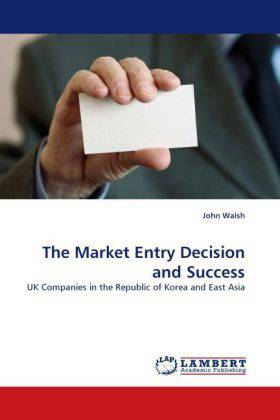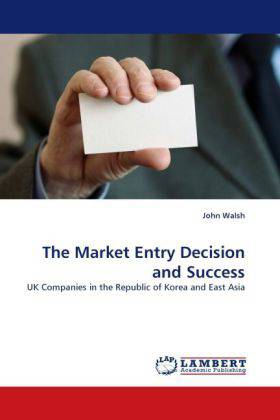
- Afhalen na 1 uur in een winkel met voorraad
- Gratis thuislevering in België vanaf € 30
- Ruim aanbod met 7 miljoen producten
- Afhalen na 1 uur in een winkel met voorraad
- Gratis thuislevering in België vanaf € 30
- Ruim aanbod met 7 miljoen producten
Zoeken
The Market Entry Decision and Success
UK Companies in the Republic of Korea and East Asia
John Walsh
Paperback | Engels
€ 107,45
+ 214 punten
Omschrijving
The Market Entry Decision and Success Although the market entry decision has received attention, literature dealing with it suffers from unstated assumptions that colour the understanding of what firms are trying to achieve; the effects of time are rarely included, as too are the full impact of country-specific factors. Further, many studies are based on a partial sample of firms from a small or at least limited number of industries which tends to reduce the rich complexity of the overall decision process. This thesis tries to help remedy some of these shortcomings by providing an empirical study of UK firms entering three economies in East Asia: the Republic of Korea, Japan and Taiwan and their definitions of success. Success is a multi- dimensional construct which has definite associations with some entry decisions and that it is country-specific conditions which are most influential in determining which entry modes will be adopted and whether operational modes will have subsequently changed or be likely to change in the future. The thesis also deals with the appropriate matching of market entry modes with the particular economies studied.
Specificaties
Betrokkenen
- Auteur(s):
- Uitgeverij:
Inhoud
- Aantal bladzijden:
- 340
- Taal:
- Engels
Eigenschappen
- Productcode (EAN):
- 9783843377522
- Verschijningsdatum:
- 23/11/2010
- Uitvoering:
- Paperback
- Afmetingen:
- 150 mm x 220 mm
- Gewicht:
- 467 g

Alleen bij Standaard Boekhandel
+ 214 punten op je klantenkaart van Standaard Boekhandel
Beoordelingen
We publiceren alleen reviews die voldoen aan de voorwaarden voor reviews. Bekijk onze voorwaarden voor reviews.








